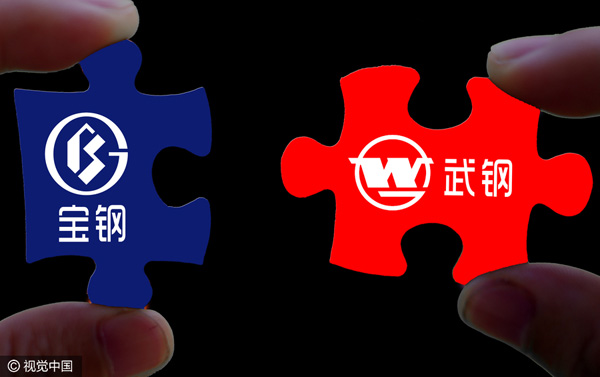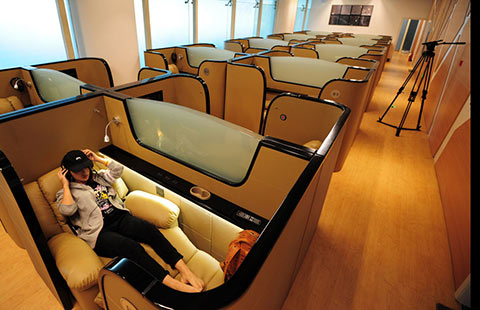Baosteel's ratings pressured by merger with Wuhan Iron and Steel: Moody's
(Xinhua) Updated: 2016-09-24 14:34

BEIJING - The announced merger of Baosteel Group and Wuhan Iron and Steel Group is credit negative and will put pressure on Baosteel's ratings, rating agency Moody's said in its initial assessment of the move.
On Tuesday, the State-owned Assets Supervision and Administration Commission of the State Council of China approved the joint restructuring of the two steelmakers to form the largest steel company in China by capacity.
The initial assessment by Moody's is that the merger will strengthen the merged entity's market position as the largest steel producer by capacity in China, rationalize production capacity, management costs and capital expenditures, as well as reduce price cutting from competition in the domestic market.
However, the benefits will take time to be realized, the agency noted.
On the other hand, Wuhan Iron and Steel Group's weaker operations and financial position will weaken Baosteel's financial capacity, and the debt leverage will remain high after the merger.
The details of the merger have yet to be finalized. Once detailed information becomes available, Moody's said it will assess the impact on the ratings within the Baosteel group.
Last year, crude steel output of Baosteel and Wuhan Iron and Steel was 34.94 million tons and 25.78 million tons, respectively. After the merger, the output of the newly merged company will exceed that of Hebei Province's HeSteel Group to rank first in China and become the world's second largest steelmaker, after ArcelorMittal.
The move is the latest effort by the Chinese government to cut steel overcapacity. China is the world's largest producer and consumer of steel. The industry has long been plagued by overcapacity, which has become a major drag on China's growth in recent years.
Annual steel production in China is 1.2 billion tons, but the country aims to reduce steel production by 45 million tons in 2016.
- Chinese market alleviates EU agri-food crisis: European commissioner
- China city commercial banks' assets total $3.76 trillion
- Nigeria keen on cooperation with Chinese investors
- Chinese food company acquires Canada's Kerr
- Cross-Straits trade volume down 9.8% in January-July
- ICBC designated as RMB clearing bank in Russia
- China to launch yuan's direct trading with Saudi riyal, UAE dirham
- China's Xinhuanet gets approval for going public in Shanghai

















